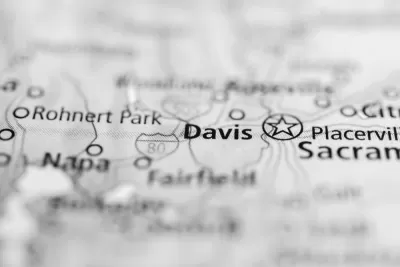Despite opposition from the neighborhood, a low-income housing community was built in an upscale subdivision in California. How did developers make it happen?

In October 2001 about 100 angry neighbors showed up for a tense neighborhood meeting at the Wildhorse Golf Club to discuss plans for a vacant 5-acre site. It was at that city-sponsored public meeting that homeowners of the upscale Wildhorse area in north Davis learned that 59 low-income apartments were to be built in the middle of their community, only 300 feet away from the golf course. The apartments would specifically be rented to extremely low, very low, and low-income households.
Accusations flew, tempers rose, and distrust was rampant. Of the seven low-income projects that Neighborhood Partners LLC has developed in Davis, this was the project with by far the most opposition.
The meeting was dominated by a vocal opposition of people who worried that their home values would be reduced by the addition of low-income apartments; that the single family nature of the neighborhood would be spoiled by out-of-town renters; and that crime would rise, traffic would increase, and local schools would be severely impacted. Others claimed that real estate agents had promised them that the site was going to be a park or a senior housing complex despite the fact that the homebuyers had all been provided with city maps showing that the site was reserved for low-income housing.
Some of the homeowners hired a local attorney who, at the meeting, pointedly raised various regulatory challenges to the city’s planning process for the proposed project. The attorney hinted at a lawsuit that would delay the project for at least two years if the developers tried to move ahead.
At the time, Wildhorse was the latest single-family subdivision built on the outskirts of the city. Home prices in the neighborhood were the highest of any of the other subdivisions in the area. Currently the median list price in Wildhorse is $873,000, according to Realtor.com.
Being aware of the neighborhood’s opposition to the project, Neighborhood Partners LLC, an organization that develops nonprofit housing, and where I serve as co-principal, sat down with Richard Berteaux, the project’s architect, to think through how we could respond to the substantial resistance voiced at the neighborhood meeting.
The site provided for enough affordable units to meet the city’s inclusionary zoning requirement, but it had sat empty for years while all the market-rate homes in the subdivision were built and sold. At that time, the city council preferred not to develop the site. Under California law, if a jurisdiction could show that it had land on which it could build low-income housing to meet regional targets, cities were not required to actually add any more affordable housing ...
FULL STORY: How Engagement and Design Won Over Wary Neighbors

Trump Administration Could Effectively End Housing Voucher Program
Federal officials are eyeing major cuts to the Section 8 program that helps millions of low-income households pay rent.

Planetizen Federal Action Tracker
A weekly monitor of how Trump’s orders and actions are impacting planners and planning in America.

Ken Jennings Launches Transit Web Series
The Jeopardy champ wants you to ride public transit.

California Invests Additional $5M in Electric School Buses
The state wants to electrify all of its school bus fleets by 2035.

Austin Launches $2M Homelessness Prevention Fund
A new grant program from the city’s Homeless Strategy Office will fund rental assistance and supportive services.

Alabama School Forestry Initiative Brings Trees to Schoolyards
Trees can improve physical and mental health for students and commnity members.
Urban Design for Planners 1: Software Tools
This six-course series explores essential urban design concepts using open source software and equips planners with the tools they need to participate fully in the urban design process.
Planning for Universal Design
Learn the tools for implementing Universal Design in planning regulations.
Ada County Highway District
Clanton & Associates, Inc.
Jessamine County Fiscal Court
Institute for Housing and Urban Development Studies (IHS)
City of Grandview
Harvard GSD Executive Education
Toledo-Lucas County Plan Commissions
Salt Lake City
NYU Wagner Graduate School of Public Service





























